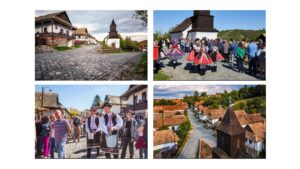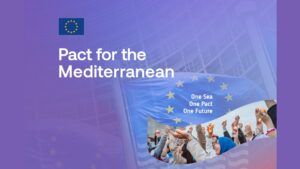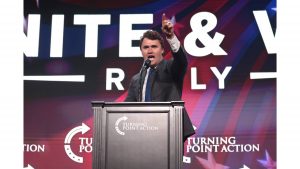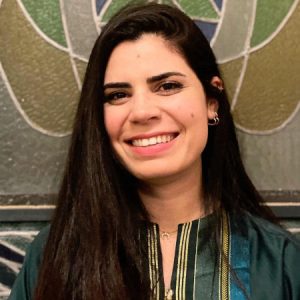How Ludovika University brings law and humanity together?
This blog draws on an interview with Réka Varga, Dean, Associate Professor and Head of the Department of International Law at Ludovika University of Public Service. With past experience as legal adviser to the International Committee of the Red Cross (ICRC) and Hungary’s Ministry of Foreign Affairs, Dr. Varga brings a pragmatic, impact-oriented approach to international law and public policy education.
In a world where geopolitical tensions are no longer distant concerns but lived realities, the question of how we prepare future public servants to understand and respond to conflicts has become more urgent than ever. At Ludovika University of Public Service in Budapest, one way this preparation takes shape is through the course Sexual Violence in Armed Conflict: Legal and Humanitarian Aspects, led by Réka Varga.
The content, methods, and objectives of this course align closely with the broader ambitions of peace education. Drawing on international law, humanitarian practice, and survivor testimony, the course equips students not only with legal knowledge, but also with empathy, contextual understanding, sensitivity, and the awareness needed to engage with the human consequences of conflict and respond to the lived realities.
“The mission of this university is public service,” Varga explained. “So we teach students with the purpose of preparing them to understand the complex issues of what is going on such as war, peace, law, humanitarian consequences, and translate that into the language of public service locally or internationally.”
From Law to Lived Experience: Teaching the Realities of Conflict
The course is shaped by multiple factors: the increasing reality of war both globally and in Central Europe, Varga’s expertise in the subject, and a unique opportunity to welcome Nobel laureate and Yazidi survivor Nadia Murad as a guest speaker.
“I thought it was important for students to understand war not just as an abstract term,” Varga said. “Inviting survivors like Nadia Murad gives the course a reality touch. It sticks more. Students remember it better when they hear individual stories; war becomes something they can resonate with, not just a distant geopolitical decision.”
Innovative Teaching for a Complex World
The course is also part of a broader institutional strategy to innovate teaching. Ludovika’s rector has pushed for creative teaching methods, moving beyond lecture based formats to include experiential and practice oriented learning. Varga, as dean, takes it further within the Faculty of Public Administration.
“I made it obligatory for every faculty member to bring in at least two practitioners per course,” she shared. “Students need a reality touch. They need to hear how things really work, whether it is diplomacy or humanitarian law. From day one, I want them ready to think structurally and apply what they learn in real life decisions.”
The course combines lectures and seminars, with 40% of the sessions focused on smaller group discussions. Students explore with real-world case studies, such as those from Colombia, Sudan, and Syria, engage with professionals from humanitarian organizations and public institutions. This allows them to reflect on how legal frameworks and policy decisions affect real lives.
Many of the students at her school graduated during COVID and feel disoriented by traditional classroom settings, so this practical approach is particularly meaningful. “We use smaller groups, give more individual care and mentorship, and they love it and react positively to it. We take them to visit ministries, the parliament, meet with decision makers, or relevant organizations. And the representatives of public administration appreciate it too, it’s a great recruitment basis, and it gives them a window into how the younger generation perceives and engages with the world.”
Universities as Civic Actors
Beyond the classroom, Varga sees universities, especially public service institutions, as having a duty to contribute to broader societal understanding.
“It’s our task as a university for public service to serve the public. Academic articles are important, but how is the general public going to understand our work if we don’t translate and simplify it? Blogs, short presentations, field visits – these are ideal tools to raise awareness.”
This perspective informs her view of how universities can strengthen their role in promoting justice and awareness about peace and conflict related issues: through specific courses, practitioner engagement, and keeping sensitive topics, like sexual violence in armed conflicts, in focus. “Universities are a good place to do this. We’re shaping how students think. It’s not just about teaching law or other subjects, it’s about including affected people, organising conferences, and making sure these topics stay on the agenda.”
Lessons That Last: What Students Take With Them
A lasting contribution Varga offers is her reflection on what she hopes students take away, not just from this course, but from their education as future public officials.
“Always think of the impact, not just of your actions, but of the situation as a whole, of what is happening. Try to imagine how the victims experience it; that’s where empathy begins. These students are future decision-makers, and once they hear a survivor’s story, it stays with them.”
This course reminds us that education is not only about knowledge. It is also about moral grounding, legal literacy, civic consciousness, empathy, awareness, and “our common humanity”. In a time when war once again occupies global headlines, teaching future public servants to see the human stories behind policies may be one of the most powerful contributions a university can make to peace.
Photo source: ChatGPT






